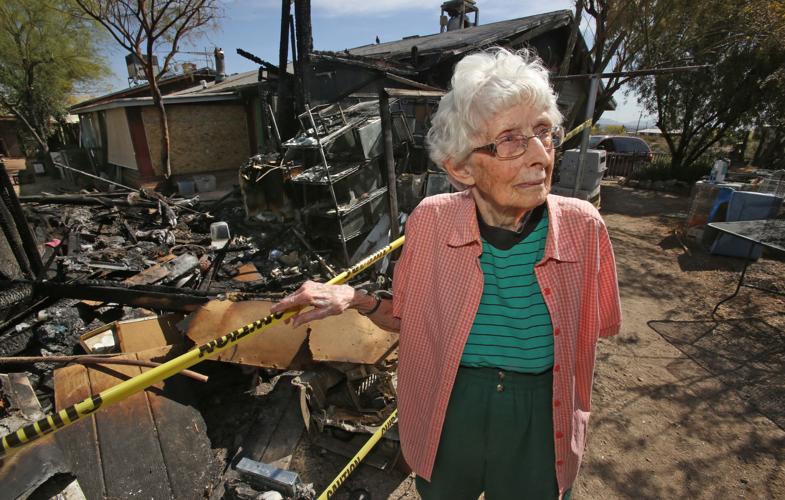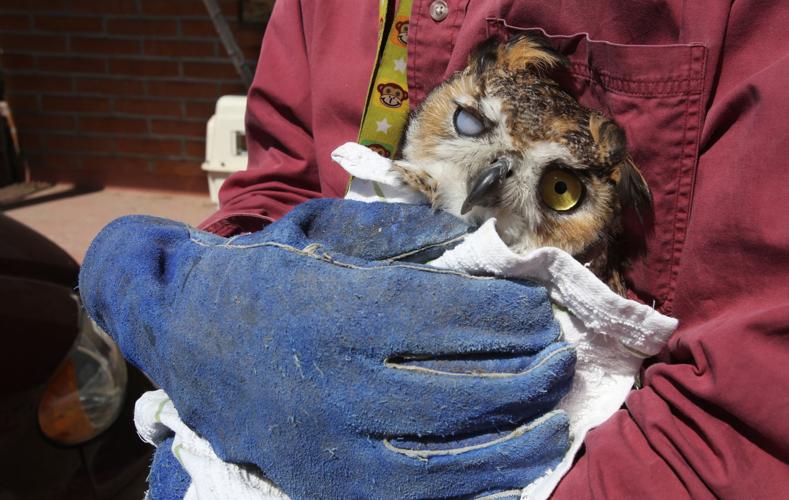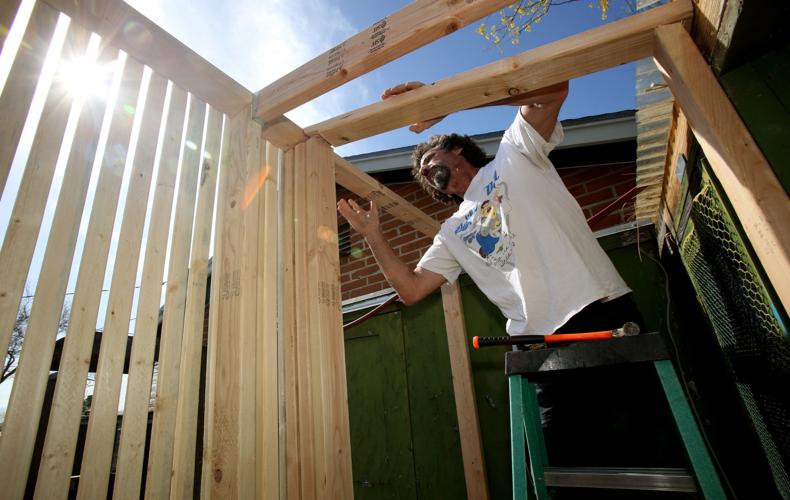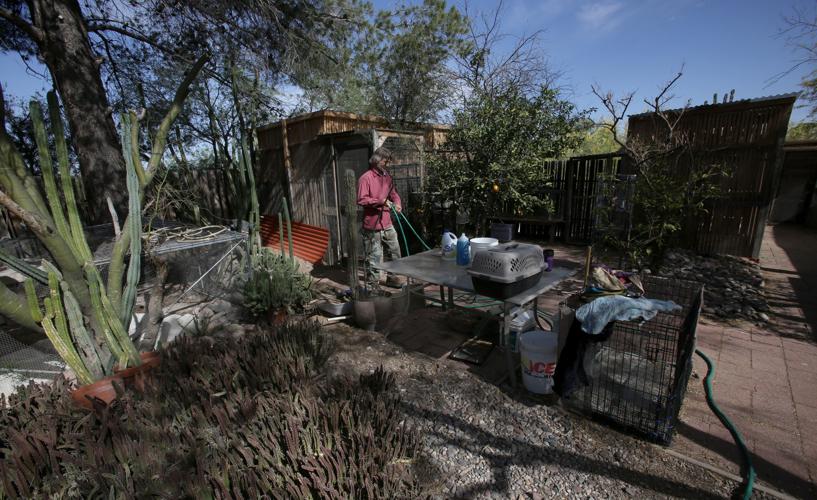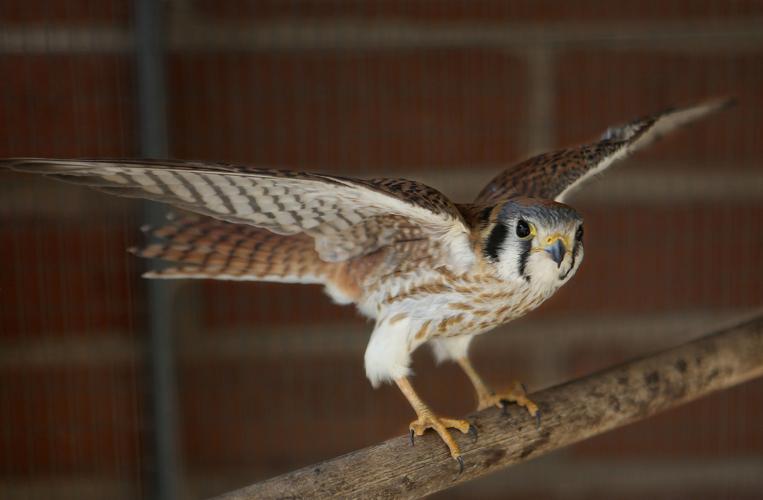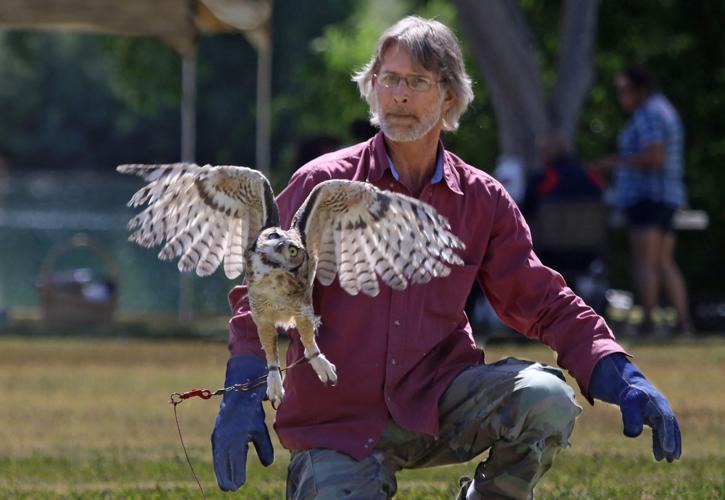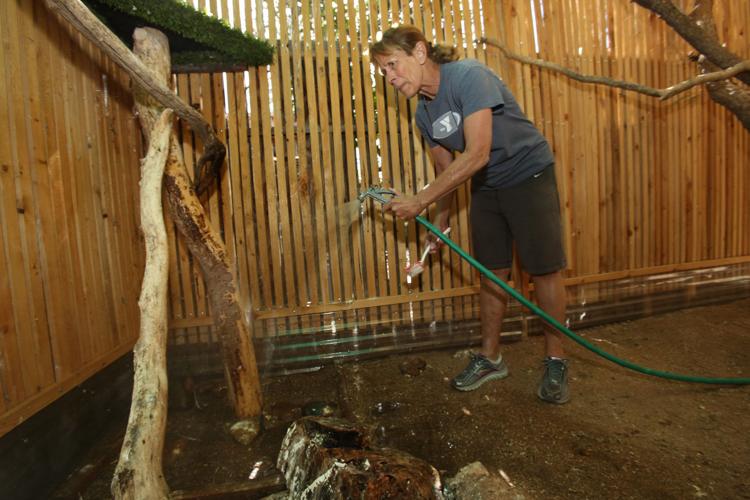Over the past 20 years, thousands of injured birds and critters have been quietly nursed back to health at a wildlife sanctuary nestled in the hills of northwest Tucson.
On the night of March 30, a fire ripped through the center, killing multiple animals and destroying structures, equipment, food and supplies that Wildlife Rehabilitation in Northwest Tucson relied on to operate.
It took 22 firefighters more than 20 minutes to extinguish the fire and another 45 minutes to search through the home for hot spots. With no hydrants in the area, firefighters had to use a water tender to battle the blaze.
Three weeks later, Wildlife Rehabilitation’s training and operations continue, despite the fact that many of the surviving animals have been moved to other centers or private homes until the sanctuary is rebuilt.
The cause of the fire hasn’t been determined and much of the damage is still visible, as volunteers aren’t able to clear out the wreckage until the fire inspection is complete.
“It was devastating,” volunteer Nancy Chilton said. “The loss of property was one thing, but we lost some of our education birds and other birds who were in recovery and to whom we were very attached.”
The sanctuary, owned and operated by 86-year-old Janet Miller, is licensed by the Arizona Game and Fish Department. In addition to rehabbing injured animals, the center also provides education to students across Tucson about desert wildlife and the ways animals can be injured by sharing their environment with humans.
The center takes in all types of animals, many of which are birds, but also small and larger mammals, including bobcats and coyotes.
Of the thousands of animals that have come through the center over the years, a high percentage have been rehabbed and released, and a large number of the animals that had permanent injuries that didn’t allow them to be released into the wild have been transferred to wildlife education facilities all over the country, including the Arizona-Sonora Desert Museum and the Reid Park Zoo, Chilton said.
The center has always been funded by private donations and staffed by volunteers, whom Miller says are essential to the sanctuary’s day-to-day functioning.
There are roughly 60 volunteers who fill two shifts a day at the center, doing everything from housekeeping duties to assisting with wound care, physical therapy and feeding the animals, Chilton said.
Although more than a dozen birds of prey remain on site in the center’s outdoor aviaries, many of the other surviving animals have been temporarily moved to other locations, leaving the volunteers with fewer birds to feed and tend.
“We’re actually using the time that we have to work on other projects that have needed attention for a long time,” Chilton said.
Once the fire inspection is complete, volunteers can begin cleaning up the structure, after which they’ll begin to replace equipment and restock supplies lost in the fire. The next step will be rebuilding the main room where the animals were held and the adjacent cages.
“This is going to be very much focused on redesigning and making the space more appropriate for the kind of work we’re doing there,” Chilton said. “The center was one of those things that was added onto as need increased, now we have this opportunity to start from scratch and really design the whole place so that it’s a good space for the animals and it’s easy for the volunteers to move around in.”
In early April, Chilton set up a fundraising site with a goal of $10,000. In 18 days, it’s exceeded its goal, raising more than $16,000.
“The funding is going to be very helpful, but we’re going to need continued funding to get through it. The insurance from the fire should help, but as far as running the center, we’re always going to depend on public help,” Chilton said.
While the large volume of donations that rolled in quickly was wonderful, the outpouring of support from community members offering to help in other ways was also a welcome surprise.
“A lot of people have called and said they really want to help by either offering services or bringing us supplies,” Chilton said. “We’ve had Girl Scouts and Boy Scouts and different groups like that who have come forward to offer their help with cleanup or with anything else where we need people. It’s really encouraging.”


